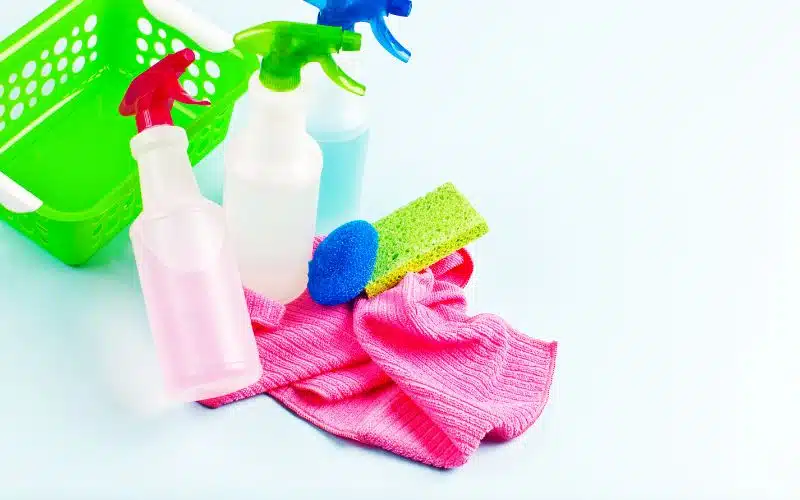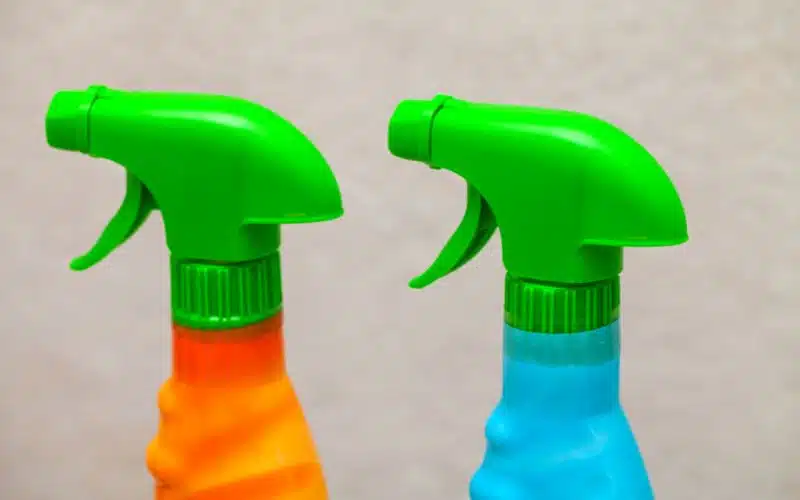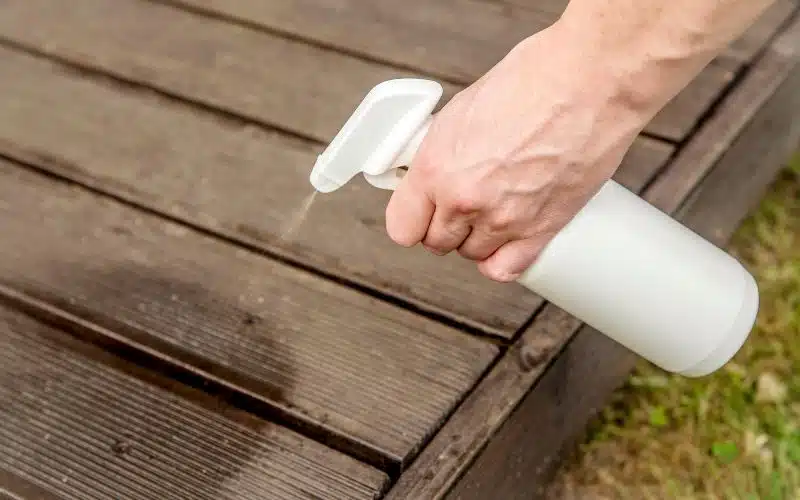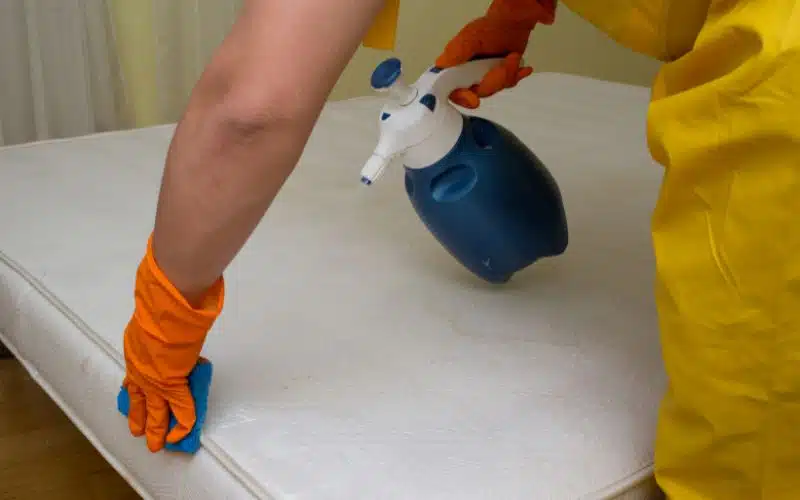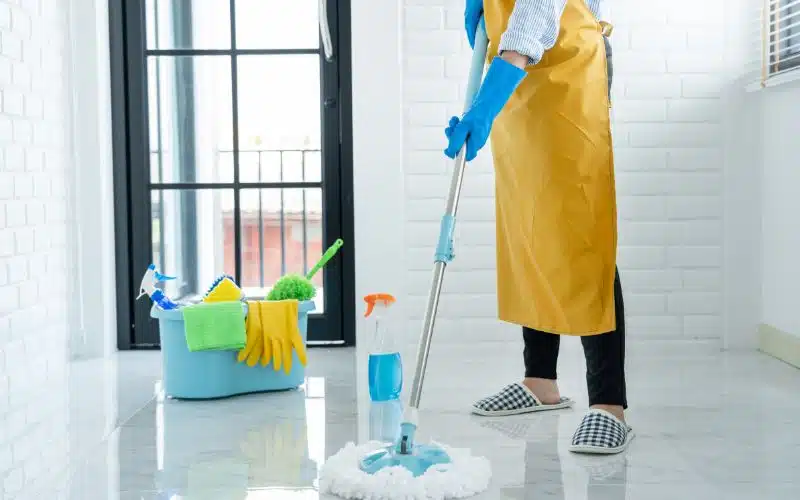Every surface cleaner would indeed expire. It could be after months or years, but it’s bound to happen.
Have you ever purchased a Windex cleaner without an expiry date? Please don’t feel it’ll last forever or stay for a very long time.
These are made of chemicals; hence, they must lose their strength after a while. However, does Windex expire, and how long does it last?
Like every other bleach and cleaning agent, Windex expires at least two years after its production. However, it is important to note that once you open a bottle of Windex, you must use it immediately. Consequently, you cannot use it for longer than ten months after you expose it to air.
How Long Is Windex Good For?

The shelf life of a Windex cleaner is 2 years, according to the manufacturers of the Windex.
However, this duration only applies when it hasn’t been opened yet. Why is that? It is usual for things like that to the last longer when not in use.
The Windex will not last up to 2 years when it’s opened and in use. This duration might reduce to a year or even 6 months, depending on the user of the Windex cleaner.
What do I mean by the user? A person who knows how to keep it tight in a warm environment and who is careless with it and keeps it in any part of the house.
These two people will notice differences in their Windex as time goes on. But one will notice a change earlier than the other.
The first person will use their Windex cleaner for longer than the second because temperature, sunlight, and air are catalysts and play an essential role in making the Windex cleaner expire faster.
However, this doesn’t mean that the first person can use the Windex for up to two years. The highest they can use it is a year.
It will stay for about 6 months or less if it’s not stored correctly. At this point, it becomes less effective.
To track how long you’ve been using your Windex, the best thing to do is to write down the days you opened it because some people start counting from the moment they purchase the item, even without opening it.
Also, if you’re not ready to start using it, do not open it. Again, you don’t have to worry if you’re finding it difficult to store your Windex after opening it.
First, you should ensure it’s tightly covered so it doesn’t evaporate. Then, please put it in a cupboard.
A cupboard is better because it is warm, there is no sun and too much light. If a cupboard is not available, look for a place, probably your room.
The Windex comprises water and chemicals like ammonia, alcohol, lauramine oxide, ethylene diamine, and many more.
So, keeping it in a cold place will make it freeze, and keeping it in a scorching place or close to heat sources would cause a breakdown of the chemical compounds, which is why an average temperature is best.
What Happens When Windex Expires?
Before the Windex cleaner expires, the process happens gradually. It doesn’t happen suddenly without showing signs; this is the difference between home cleaners and food.
When Windex expires, there are physical changes that occur. Not just that, chemical changes also occur.
However, the physical changes are visible while the chemical changes are observed. Usually, Windex is light blue.
When this expires, the color changes from blue to brown. Nobody needs to tell you that your Windex has expired when this happens.
Also, it has become a bit thick, foamy, and sometimes sticky. It has expired. Expired Windex should be trashed.
It is not good to use expired Windex to clean. Although it is not dangerous, it’s as good as useless using an expired Windex.
Why is that? The reason is that it has no cleaning effect anymore. It has lost its cleaning power.
So again, using an expired Windex will produce streaks on your glass, and you wouldn’t want more stains while trying to remove stains.
So first of all, it will not clean your glass, and secondly, you might see some stains on your glass. The chemical changes that occur when it expires affect Windex’s physical appearance.
When air, dirt, and water come in contact with the Windex, it reacts with the chemical composition of the cleaner, and this causes chemical breakdown.
These chemicals give Windex its cleaning power because Windex is water and chemicals. So, when these chemicals are affected, the Windex cleaner gradually starts getting bad to use.
Each ingredient has what they do in the Windex cleaner. So, if it changes color, the ingredient responsible for color has been affected.
If the fragrance changes, it simply means the ingredients that have been affected and so on.
What Should You Not Use Windex On?
Many people feel that since Windex is used to clean mirrors and glass, you can use it on any surface.
However, using Windex on every surface is not advisable because it might be too strong for the surfaces and cause damage to them.
Always stick to the manufacturer’s guide on how and where to use Windex. After all, they made it and know what it’s best for.
Do not use Windex on phone and laptop screens. Funny how some people spray Windex on their phone’s screen to clean it.
Phone screens have a special liquid used to clean them. Using Windex is inappropriate and will cause problems for your phone.
It contains chemical substances like ammonia that seriously damage your phone or laptop screens. Again, do not use Windex on leather.
This action will produce streaks or stains on the leather chairs that might be difficult to remove because the chemicals contained in Windex cleaner would react with leather.
People feel it’s okay to clean their leather chairs with Windex once they see a stain. It is not advisable.
Windex cleaner isn’t for leather chairs. Instead of Windex, use a clean cloth wet with water; this is more suitable for leather.
Do not clean copper-made utensils with Windex; this will cause discoloration to your pans, pots, and kettles made of copper, not just copper. Likewise, do not clean cooking utensils with Windex.
They are cooking utensils, so do not use chemicals on them to clean them, as it is not healthy to use chemicals on anything that comes in contact with the food we eat. Water is just fine for that.
Avoid using Windex cleaner on marbles and granites. I’ve seen where someone sprays their Windex cleaner on marble tiles in the kitchen to clean.
I was ignorant then and felt it was a good thing to do not until I realized that marbles and granites are natural stones.
They do not need Windex cleaner because it will dull their appearance. Instead, look for the appropriate cleaner for them and use it.
Your bathtubs, toilet sink, and toilet seats are not excluded from this. These are places you should use bleach and peroxide to scrub correctly and not a Windex cleaner.
The Windex cleaner isn’t made to clean the toilet because there are other cleaners made for this and appropriate for this.
Also, I’ve been in a situation where I tried mixing bleach and a Windex cleaner to clean my bathroom, and I almost passed out.
Why was it so? Ammonia and bleach don’t go well together. It will choke you, and you might pass out if care is not taken.
Usually, it is advisable to protect your skin when using Windex. If it touches your skin mistakenly, you should wash that part immediately with water.
In addition, do not use Windex on the skin for any reason. The chemicals in it are not suitable for the skin. If you have furniture or equipment with wood, use a dry cloth to clean, not Windex.
The only exceptions in using Windex on the wood are if the wood is sealed with a waterproof finish and varnish or polyurethane varnish.
The table below summarizes the effects of using Windex on certain things.
Final Thoughts
Household cleaners expire, and Windex is not an exception. If you have used your Windex cleaner for a year, then you’ve been using an expired Windex.
Its shelf life is 2 years when sealed and a year or less when opened. However, you can make it last longer if you store it properly. Avoid using Windex on all surfaces.
